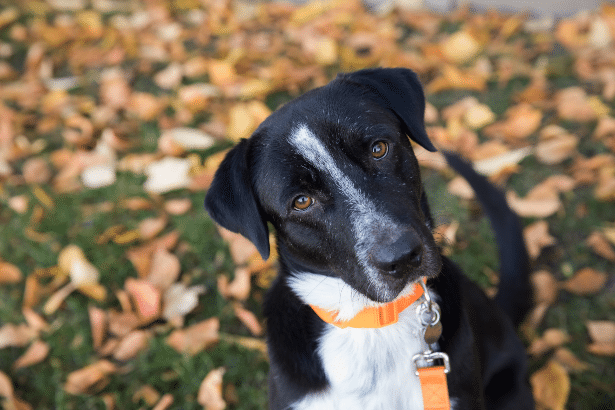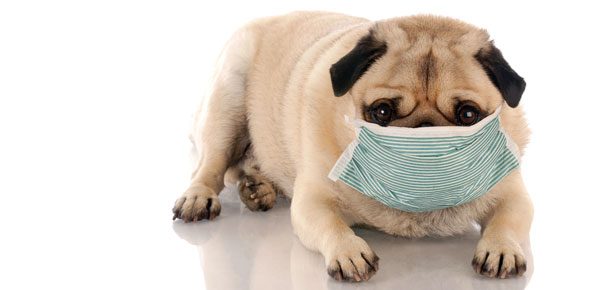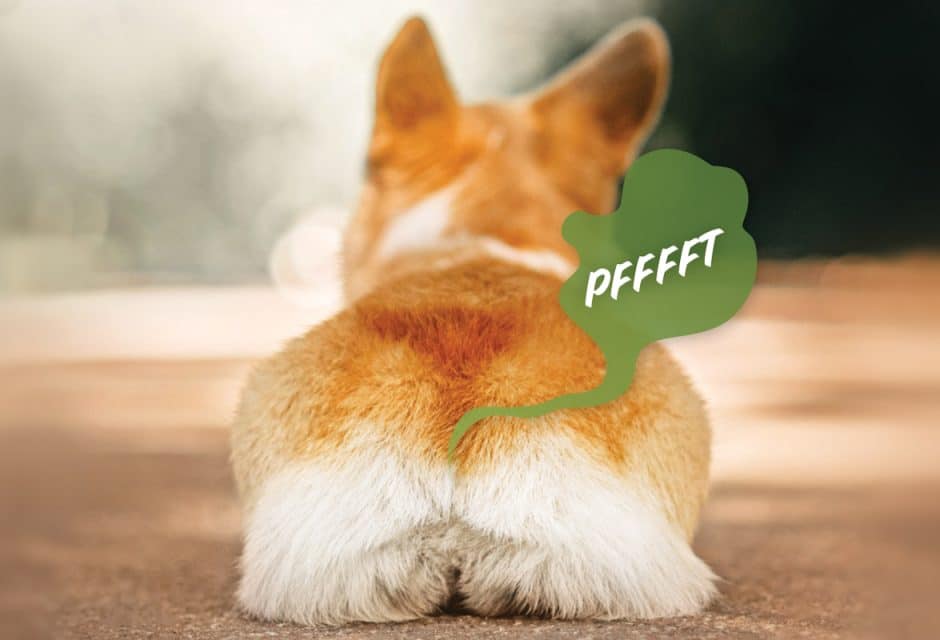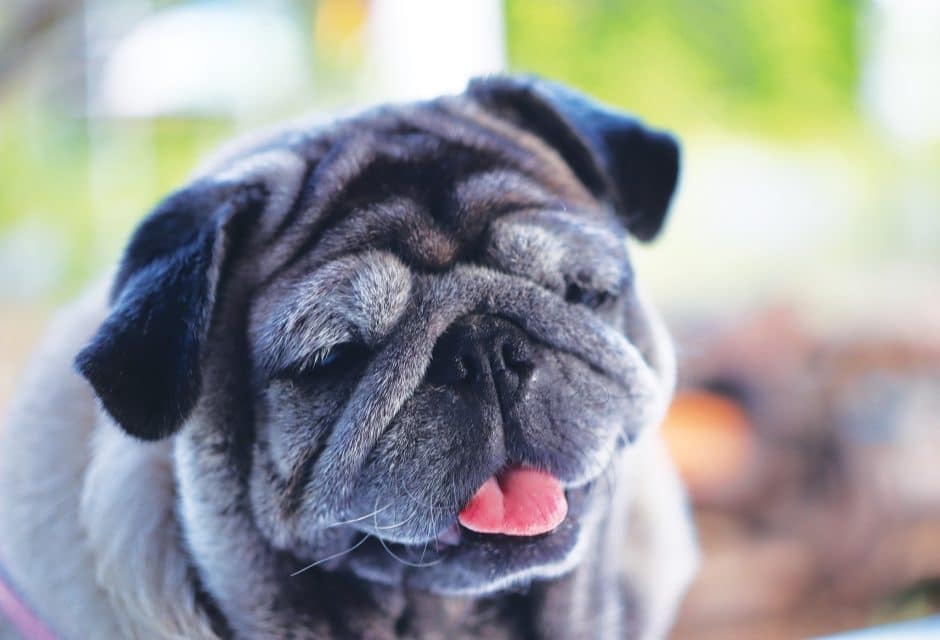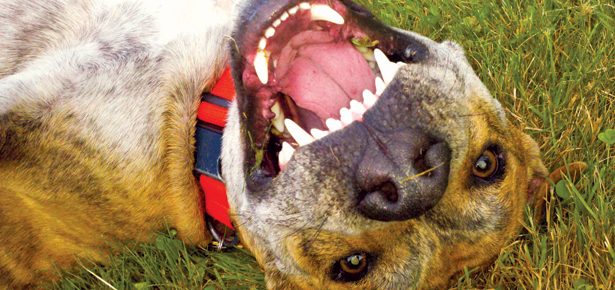
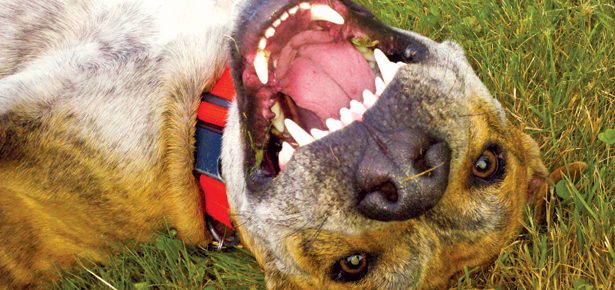
8 Reasons You Should Get Your Dog’s Teeth Cleaned
Show 'em those pearly whites!
Crunching on kibble and chewing on raw bones and dental treats will definitely help scrape calculus from teeth, but it’s nowhere near as effective as regular brushing and dental cleanings. Here are 8 reasons you need to do something about your dog’s dental health:
1. 80% of dogs (cats too) have some degree of periodontal disease by the age of two. This is defined as inflammation affecting any of the structures supporting the teeth—the gums, the roots, the bone around the roots or the periodontal ligaments that anchor the roots to the jawbones.
2. The same biological processes that happen in our mouths happen in our dogs’ mouths. Namely, a bacterial biofilm coats the surface of the teeth. Left undisturbed for 72 hours this film will calcify, turning into a cement-hard—albeit microscopically thin—layer on the teeth. Over time, hundreds of these layers accumulate atop of one another, resulting in the nasty yellow-brown gunk on our dogs’ teeth called plaque. When you see plaque, think hundreds of layers of bacterial concrete!
3. Regular brushing disrupts this biofilm and can prevent or reduce the accumulation of calculus (a.k.a. plaque). Keeping plaque under control means healthier teeth, long term.
4. Sedation-free teeth scaling, while effective at removing visible calculus in a cooperative dog, will not address calculus buildup under the gums where most periodontal disease occurs. If the teeth aren’t being polished after scaling, microscopic chips and scratches created by the scaling tools create “scaffolding” for calculus to resume accumulating even more quickly. Short-term gain can equal long-term pain!
5. Plaque is like cement full of bacteria. These bacteria cause inflammation and infection of the gums, gum recession, and bone destruction around the roots on the teeth. Gingivitis and bone loss result in loose teeth. Loose teeth are painful. Period.
6. Bacteria can enter the bloodstream through inflamed gums and cause damage elsewhere in the body. Think plaques on the valves of the heart as well as on the filtration system in the kidneys, amongst other places.
7. Our dogs are often very stoic and will not let on that their teeth are causing them pain. They may, however, give us clues such as not tugging as vigorously on their toys, turning their noses up at kibble, showing a preference for soft foods, or rubbing their faces to alleviate discomfort. If your dog has bad breath and brown teeth, get to your veterinarian for an oral health exam.
8. Many small-breed dogs have a predisposition to periodontal disease. Yorkies, Pomeranians, Dachshunds, Schnauzers, Chihuahuas, and others all have a tendency to develop significant periodontal disease at a young age. If you have one of these breeds and are not brushing her teeth daily, you should see your veterinarian at least twice a year for a dental checkup.
Join the newsletter and never miss out on dog content again!
"*" indicates required fields
By clicking the arrow, you agree to our web Terms of Use and Privacy & Cookie Policy. Easy unsubscribe links are provided in every email.

